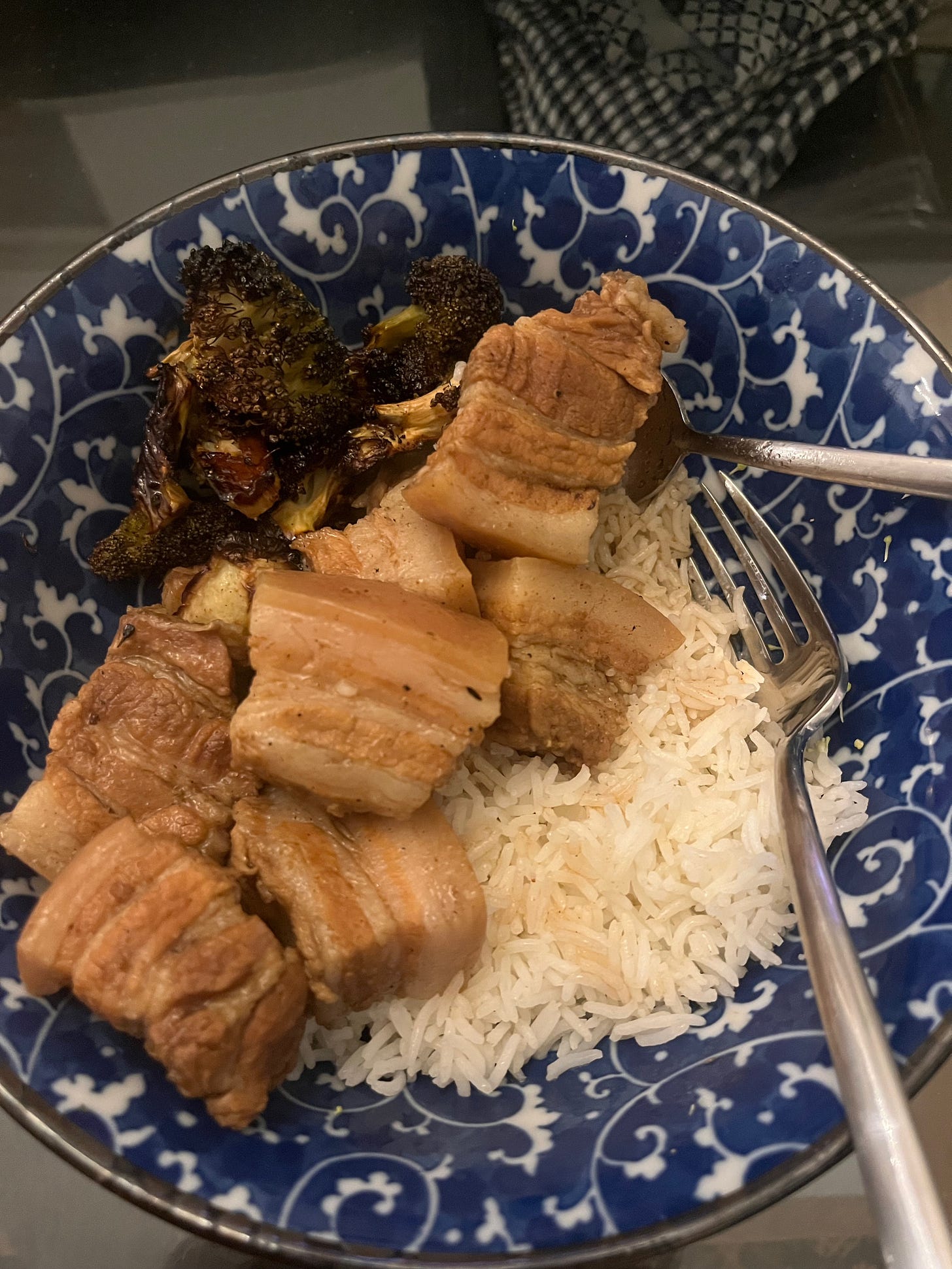Food news of the week:
Dropping a highly anticipated review for Gymkhana today, and if you haven’t watched even a little of the new Culinary Class Wars, then what are you doing? I’m so hooked; watching the spry, hungry cooks flip and saute and steam is exhilarating, and the judging is another level of genius. Thanks to the show I made Dongpo pork again, which is similar to Shanghainese braised pork belly (红烧肉) in texture but less sweet and much easier, and that’s for today’s recipe. Next week it’s a Fonda discussion, that hip new contemporary Mexican lounge.
Science of the week:
I may not have published anything specifically nutrition-related during my Masters, but masterful efforts like Big Fat Surprise are seriously like reading true crime. Easily one of the biggest nutrition scandals, the anti-saturated fat movement is based on the hypothesis that animal-based saturated fat leads to heart disease, which gained widespread traction thanks to Ancel Keys’ infamous Seven Countries Study. Keys, however, conveniently ignored countries like France, Switzerland and the Netherlands, where people were downing saturated fats like butter and cheese but had low rates of CVD. There are actually very few clinical trials which looked at causality behind this saturated fat hypothesis, and their findings mostly went unpublished because they weren’t in line with what the directors wanted to find. The MRFIT (12,000 people) and Minnesota Coronary (9,500) studies were the only randomised clinical trials that found no statistical significance linking saturated fat to heart disease. In the latter study, saturated fat was replaced with vegetable oil in the intervention group, and although total cholesterol was lowered, there was a significantly higher death rate (from all causes). There was also no evidence of benefit in this group for heart-related issues. The story behind the vilification of saturated fat is more about cherry-picked data than solid science.
Insight of the week:
Steelmanning means to present the strongest possible version of a belief, usually used in arguments. Let’s say I want to steelman the argument that using social media is anxiety-inducing. I would say something like: The 24/7 accessibility of social media totally disrupts mental rest and causes chronic overstimulation. Constant notifications and pings leads to hypervigilance, increasing anxiety levels. Cyberbullying, trolling, and the fear of being excluded from online conversations also create mental strain and anxiety.
A less steelmanning way would be something like: social media may increase anxiety by fostering constant comparison to idealised versions of life, leading to feelings of inadequacy. The continuous notifications and pressure to stay updated can also lead to stress and mental exhaustion, thus increasing levels of anxiety.
Yay for new words!
Recipe of the week:
Two words: Fatty bliss. The dark soy sauce here is paramount, permeating the pork to give its signature deep-braised colour and flavour, so you can be more generous than not with it here. To save time, you can prep and blanch the pork way before you cook it.
Ingredients:
1kg pork belly
1/3 cup (80ml) dark soy sauce
1/2 cup (240ml) shaoxing rice (cooking) wine
1/2 cup water
2 tbsp sugar
1 tsp ground ginger
1 tsp five spice
1 tsp white pepper
Directions:
Blanch the pork belly first. Slice the raw pork belly into 2 or 3-inch pieces (I use a cleaver because it’s easier), add to a large pot of water, then put the pot on high heat and let that boil until the water comes to a rolling boil and there are ugly white bits that float to the water surface.
Keep reading with a 7-day free trial
Subscribe to alexcrumb to keep reading this post and get 7 days of free access to the full post archives.



